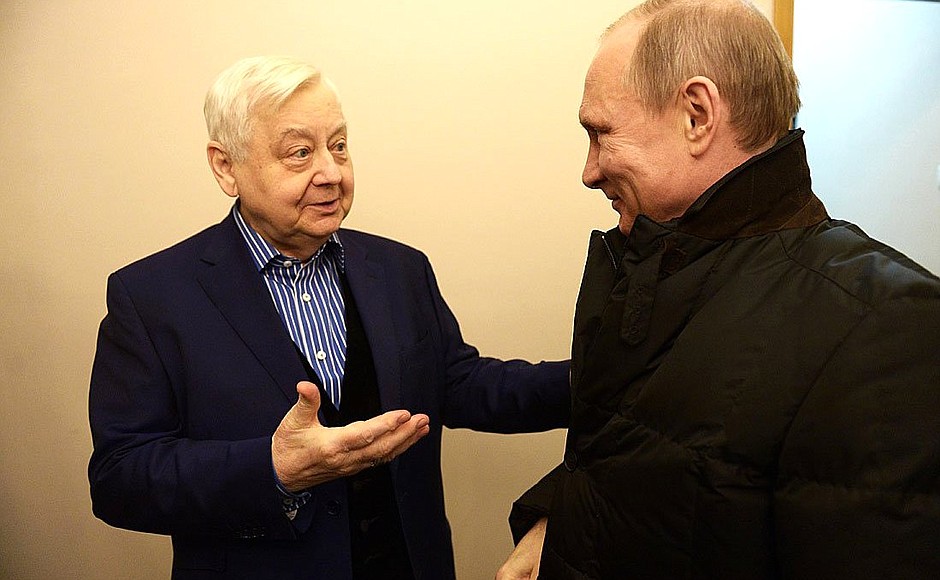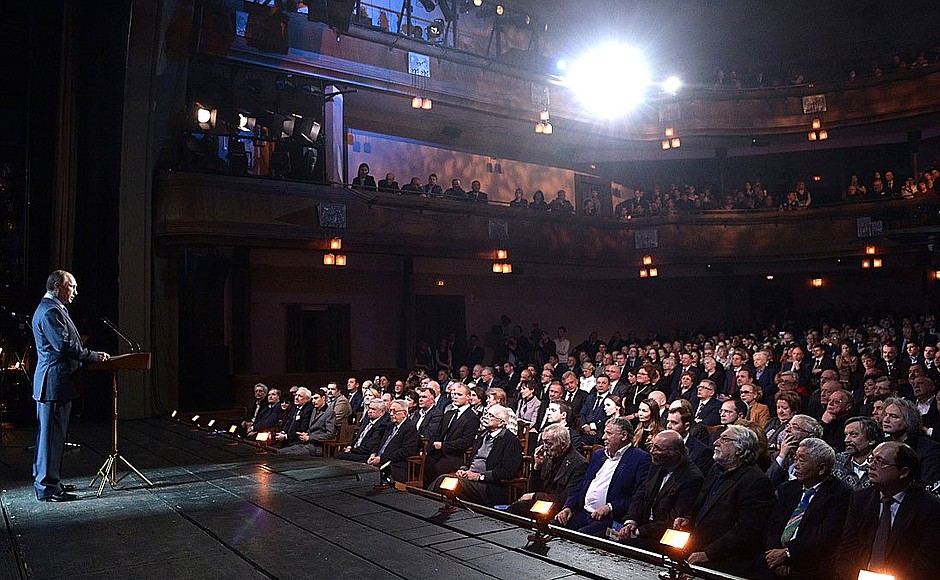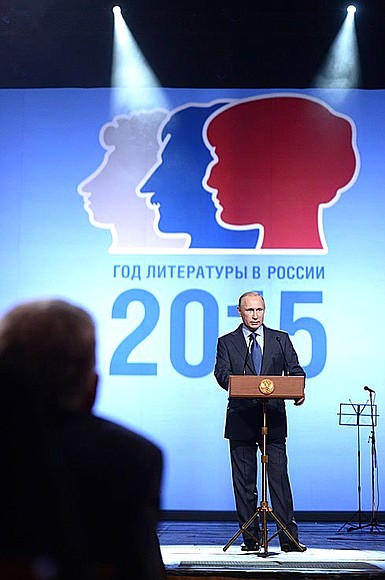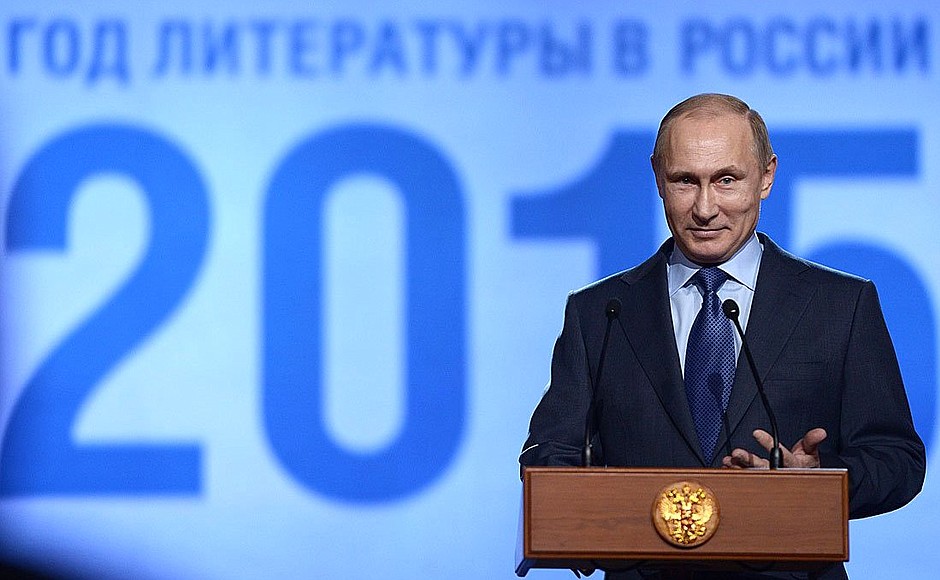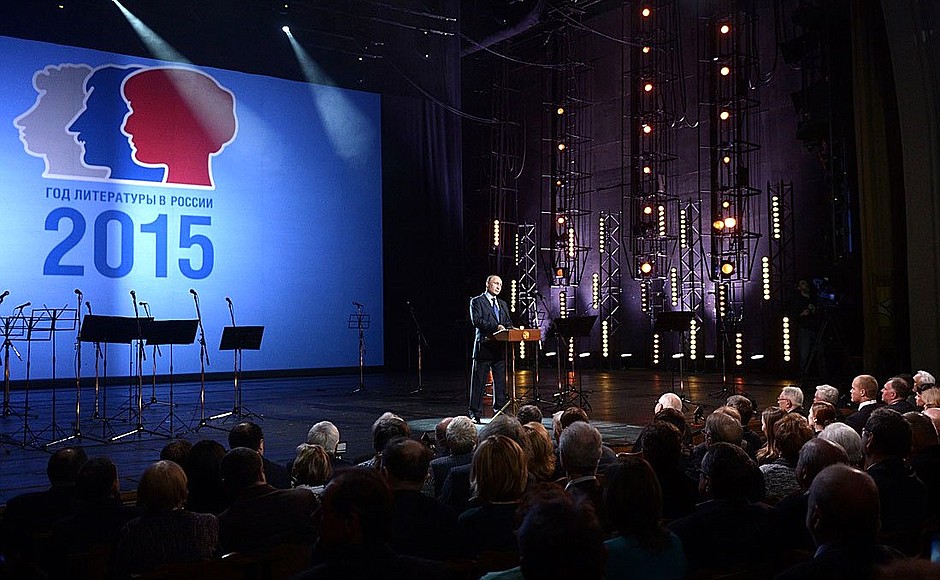See also
On June 12, 2014, the President signed Executive Order on holding the Year of Literature.
Speech at celebratory evening honouring launch of Year of Literature
President of Russia Vladimir Putin: Friends,
An initiative was proposed at the Russian Literary Assembly in late 2013 to declare 2015 the Year of Literature. At the time, the writers, librarians, museum curators and publishers who had gathered in Moscow spoke at length about the powerful creative force of Russian literature, the role it has played throughout all times in shaping individuals’ personalities, its ability to develop people’s creative potential, to unite the nation around common spiritual and moral values and define aesthetic and cultural standards for our citizens.
Many ideas expressed at the Literary Assembly were included in the Foundations of State Culture Policy, which were adopted a month ago, and I am confident that they will see good practical development and be implemented well, including in the upcoming Year of Literature, which we are symbolically launching today at the Moscow Art Theatre.
Russian literature and its traditions have always been, and continue to be, the foundation for creativity at the Moscow Art Theatre – they are its guiding star. The Reading Circle literary evening we are attending is intended to once again stress the significant role of Russian literature in the fate of this theatre and in the fate of our nations, the fate of every one of us.
Today, actors from different generations will once again present works by classical and contemporary Russian writers, poets and playwrights, and will essentially launch the events and projects of the Year of Literature.
Of course, there are many outstanding creative initiatives planned as part of the Year of Literature’s programme, but their main objective, the objective of the Year of Literature itself, is to remind us about the exceptional significance of literature and its special mission.
“I count on the Year of Literature to be held truly widely in the capitals and in all Russian regions, to help restore an understanding of good literature to our lives, to young people’s lives and, of course, an appreciation for the written word itself, all the amazing possibilities of the Russian language.”
It’s no secret that unfortunately, to our great regret, Russians are reading less, and it is fundamentally important to revive an appreciation for good books among the public. We must also help those who are, in one way or another, connected to literary work, to this field.
In recent years, we have given special attention to supporting libraries, relevant public associations and cultural institutions, including writers’ memorial houses and literary museums. And this work will certainly, absolutely be continued.
I count on the Year of Literature to be held truly widely in the capitals and in all Russian regions, to help restore an understanding of good literature to our lives, to young people’s lives and, of course, an appreciation for the written word itself, all the amazing possibilities of the Russian language, which is rightly considered among the most expressive and vivid languages in the world.
Some say that in order to add expressiveness, it is necessary to use obscenities. Tolstoy did not need to add such language – nor did Chekhov or Bunin. But you, the writers, know best. Perhaps, it can be used in order to be closer to the people but, I think, it should not become written law.
I am confident that our joint efforts will allow us to preserve the best traditions in Russian literature, to increase its prestige and influence in the world.
By preserving our culture, our language and our literature, we will preserve ourselves as a nation, a people, a country. And the thousand-year-old nation of Russia will remain Russia.
I want to once again congratulate all literature lovers, writers and experts working in the field of literature on the launch of the Year of Literature and wish you all the very best.
Thank you for your attention.
